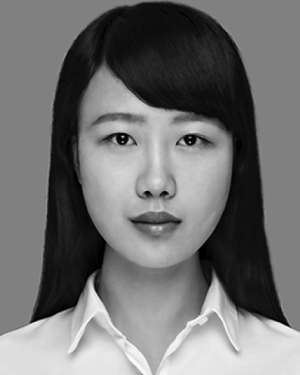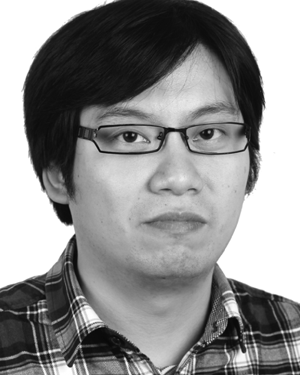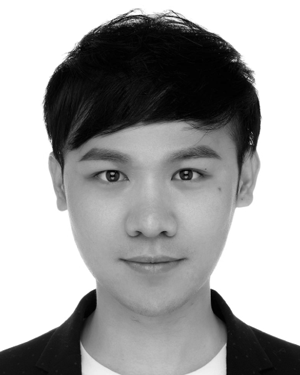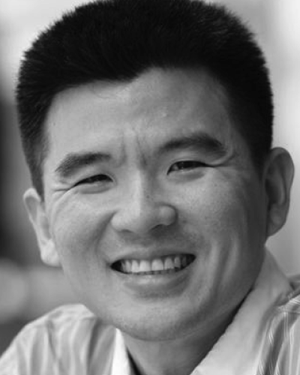Abstract:
In dense small cell networks, dynamic time-division duplex (D-TDD) technology has emerged as a promising solution to accommodate the fast variants of volatile traffic con...Show MoreMetadata
Abstract:
In dense small cell networks, dynamic time-division duplex (D-TDD) technology has emerged as a promising solution to accommodate the fast variants of volatile traffic conditions because it allows each cell to dynamically configure the uplink and downlink transmission directions. However, the flexibility of traffic configuration introduces additional inter-cell interference, which largely deteriorates network throughput. This paper proposes an interference coordination technology for D-TDD small cell networks by integrating fractional frequency reuse (FFR) with cell clustering. To evaluate the system performance, we develop a theoretical framework to analytically characterize the mean packet throughput (MPT) performance by considering the impact of spatio-temporal traffic. The analytical model can be extended to further study the FFR-based D-TDD, clustered D-TDD, and traditional D-TDD networks. We verify the accuracy of our analysis through simulations and whereby explore the effect of different network parameters. Numerical results demonstrate that the proposed scheme outperforms clustered D-TDD and traditional D-TDD for both the downlink and uplink spatially averaged MPT, and can significantly improve the performance in uplink while slightly decreasing that in downlink compared with FFR-based D-TDD. Furthermore, by jointly optimizing network parameters, the spatially averaged MPT can be maximized while enduring MPT per user.
Published in: IEEE Transactions on Wireless Communications ( Volume: 21, Issue: 1, January 2022)
Funding Agency:

Zhejiang Provincial Key Laboratory of Information Processing Communication Networks, College of Information Science and Electronic Engineering, Zhejiang University, Hangzhou, China
SUTD-ZJU IDEA, Zhejiang University, Hangzhou, China
Meiyan Song received the B.Eng. degree in communication engineering from the Wuhan University of Technology, Wuhan, China, in 2018. She is currently pursuing the Ph.D. degree with the Institute of Information and Communication Engineering, Zhejiang University, Hangzhou, China. Her research interests include the analysis of heterogeneous cellular networks using tools from stochastic geometry and queuing theory.
Meiyan Song received the B.Eng. degree in communication engineering from the Wuhan University of Technology, Wuhan, China, in 2018. She is currently pursuing the Ph.D. degree with the Institute of Information and Communication Engineering, Zhejiang University, Hangzhou, China. Her research interests include the analysis of heterogeneous cellular networks using tools from stochastic geometry and queuing theory.View more

Zhejiang Provincial Key Laboratory of Information Processing Communication Networks, College of Information Science and Electronic Engineering, Zhejiang University, Hangzhou, China
SUTD-ZJU IDEA, Zhejiang University, Hangzhou, China
Hangguan Shan (Member, IEEE) received the B.Sc. degree in electrical engineering from Zhejiang University, Hangzhou, China, in 2004, and the Ph.D. degree in electrical engineering from Fudan University, Shanghai, China, in 2009.
From 2009 to 2010, he was a Post-Doctoral Research Fellow with the University of Waterloo, Waterloo, ON, Canada. Since 2011, he has been with the College of Information Science Electronic Engineeri...Show More
Hangguan Shan (Member, IEEE) received the B.Sc. degree in electrical engineering from Zhejiang University, Hangzhou, China, in 2004, and the Ph.D. degree in electrical engineering from Fudan University, Shanghai, China, in 2009.
From 2009 to 2010, he was a Post-Doctoral Research Fellow with the University of Waterloo, Waterloo, ON, Canada. Since 2011, he has been with the College of Information Science Electronic Engineeri...View more

Zhejiang University/University of Illinois at Urbana-Champaign Institute, Zhejiang University, Haining, China
College of Information Science and Electronic Engineering, Zhejiang University, Hangzhou, China
Department of Electrical and Computer Engineering, University of Illinois at Urbana-Champaign, Urbana-Champaign, IL, USA
Howard H. Yang (Member, IEEE) received the B.E. degree in communication engineering from the Harbin Institute of Technology (HIT), China, in 2012, the M.Sc. degree in electronic engineering from The Hong Kong University of Science and Technology (HKUST), Hong Kong, in 2013, and the Ph.D. degree in electrical engineering from the Singapore University of Technology and Design (SUTD), Singapore, in 2017.
He was a Post-Doctora...Show More
Howard H. Yang (Member, IEEE) received the B.E. degree in communication engineering from the Harbin Institute of Technology (HIT), China, in 2012, the M.Sc. degree in electronic engineering from The Hong Kong University of Science and Technology (HKUST), Hong Kong, in 2013, and the Ph.D. degree in electrical engineering from the Singapore University of Technology and Design (SUTD), Singapore, in 2017.
He was a Post-Doctora...View more

Information System Technology and Design Pillar, Singapore University of Technology and Design, Singapore
Tony Q. S. Quek (Fellow, IEEE) received the B.E. and M.E. degrees in electrical and electronics engineering from the Tokyo Institute of Technology, in 1998 and 2000, respectively, and the Ph.D. degree in electrical engineering and computer science from the Massachusetts Institute of Technology in 2008.
He is currently the Cheng Tsang Man Chair Professor with the Singapore University of Technology and Design (SUTD). He also...Show More
Tony Q. S. Quek (Fellow, IEEE) received the B.E. and M.E. degrees in electrical and electronics engineering from the Tokyo Institute of Technology, in 1998 and 2000, respectively, and the Ph.D. degree in electrical engineering and computer science from the Massachusetts Institute of Technology in 2008.
He is currently the Cheng Tsang Man Chair Professor with the Singapore University of Technology and Design (SUTD). He also...View more

Zhejiang Provincial Key Laboratory of Information Processing Communication Networks, College of Information Science and Electronic Engineering, Zhejiang University, Hangzhou, China
SUTD-ZJU IDEA, Zhejiang University, Hangzhou, China
Meiyan Song received the B.Eng. degree in communication engineering from the Wuhan University of Technology, Wuhan, China, in 2018. She is currently pursuing the Ph.D. degree with the Institute of Information and Communication Engineering, Zhejiang University, Hangzhou, China. Her research interests include the analysis of heterogeneous cellular networks using tools from stochastic geometry and queuing theory.
Meiyan Song received the B.Eng. degree in communication engineering from the Wuhan University of Technology, Wuhan, China, in 2018. She is currently pursuing the Ph.D. degree with the Institute of Information and Communication Engineering, Zhejiang University, Hangzhou, China. Her research interests include the analysis of heterogeneous cellular networks using tools from stochastic geometry and queuing theory.View more

Zhejiang Provincial Key Laboratory of Information Processing Communication Networks, College of Information Science and Electronic Engineering, Zhejiang University, Hangzhou, China
SUTD-ZJU IDEA, Zhejiang University, Hangzhou, China
Hangguan Shan (Member, IEEE) received the B.Sc. degree in electrical engineering from Zhejiang University, Hangzhou, China, in 2004, and the Ph.D. degree in electrical engineering from Fudan University, Shanghai, China, in 2009.
From 2009 to 2010, he was a Post-Doctoral Research Fellow with the University of Waterloo, Waterloo, ON, Canada. Since 2011, he has been with the College of Information Science Electronic Engineering, Zhejiang University, where he is currently an Associate Professor. He is also with the Zhejiang Provincial Key Laboratory of Information Processing Communication Networks, Hangzhou, and SUTD-ZJU IDEA, Hangzhou. His current research interests include cross-layer protocol design, resource allocation, and the quality-of-service provisioning in wireless networks.
Dr. Shan has served as a Technical Program Committee Member for various international conferences, including the IEEE Global Communications Conference, the IEEE International Conference on Communications, the IEEE Wireless Communications and Networking Conference, and the IEEE Vehicular Technology Conference (VTC). He has co-received the Best Industry Paper Award from the 2011 IEEE WCNC held in Quintana Roo, Mexico. He was an Editor of the IEEE Transactions on Green Communications and Networking.
Hangguan Shan (Member, IEEE) received the B.Sc. degree in electrical engineering from Zhejiang University, Hangzhou, China, in 2004, and the Ph.D. degree in electrical engineering from Fudan University, Shanghai, China, in 2009.
From 2009 to 2010, he was a Post-Doctoral Research Fellow with the University of Waterloo, Waterloo, ON, Canada. Since 2011, he has been with the College of Information Science Electronic Engineering, Zhejiang University, where he is currently an Associate Professor. He is also with the Zhejiang Provincial Key Laboratory of Information Processing Communication Networks, Hangzhou, and SUTD-ZJU IDEA, Hangzhou. His current research interests include cross-layer protocol design, resource allocation, and the quality-of-service provisioning in wireless networks.
Dr. Shan has served as a Technical Program Committee Member for various international conferences, including the IEEE Global Communications Conference, the IEEE International Conference on Communications, the IEEE Wireless Communications and Networking Conference, and the IEEE Vehicular Technology Conference (VTC). He has co-received the Best Industry Paper Award from the 2011 IEEE WCNC held in Quintana Roo, Mexico. He was an Editor of the IEEE Transactions on Green Communications and Networking.View more

Zhejiang University/University of Illinois at Urbana-Champaign Institute, Zhejiang University, Haining, China
College of Information Science and Electronic Engineering, Zhejiang University, Hangzhou, China
Department of Electrical and Computer Engineering, University of Illinois at Urbana-Champaign, Urbana-Champaign, IL, USA
Howard H. Yang (Member, IEEE) received the B.E. degree in communication engineering from the Harbin Institute of Technology (HIT), China, in 2012, the M.Sc. degree in electronic engineering from The Hong Kong University of Science and Technology (HKUST), Hong Kong, in 2013, and the Ph.D. degree in electrical engineering from the Singapore University of Technology and Design (SUTD), Singapore, in 2017.
He was a Post-Doctoral Research Fellow at SUTD from 2017 to 2020, a Visiting Post-Doctoral Researcher at Princeton University from 2018 to 2019, and a Visiting Student at the University of Texas at Austin from 2015 to 2016. He is currently an Assistant Professor with the Zhejiang University/University of Illinois at Urbana-Champaign Institute (ZJU-UIUC Institute), Zhejiang University, Haining, China. He is also an Adjunct Assistant Professor with the Department of Electrical and Computer Engineering, University of Illinois at Urbana-Champaign, IL, USA. His research interests cover various aspects of wireless communications, networking, and signal processing, currently focusing on the modeling of modern wireless networks, high dimensional statistics, graph signal processing, and machine learning.
Dr. Yang received the IEEE WCSP 10-Year Anniversary Excellent Paper Award in 2019 and the IEEE WCSP Best Paper Award in 2014.
Howard H. Yang (Member, IEEE) received the B.E. degree in communication engineering from the Harbin Institute of Technology (HIT), China, in 2012, the M.Sc. degree in electronic engineering from The Hong Kong University of Science and Technology (HKUST), Hong Kong, in 2013, and the Ph.D. degree in electrical engineering from the Singapore University of Technology and Design (SUTD), Singapore, in 2017.
He was a Post-Doctoral Research Fellow at SUTD from 2017 to 2020, a Visiting Post-Doctoral Researcher at Princeton University from 2018 to 2019, and a Visiting Student at the University of Texas at Austin from 2015 to 2016. He is currently an Assistant Professor with the Zhejiang University/University of Illinois at Urbana-Champaign Institute (ZJU-UIUC Institute), Zhejiang University, Haining, China. He is also an Adjunct Assistant Professor with the Department of Electrical and Computer Engineering, University of Illinois at Urbana-Champaign, IL, USA. His research interests cover various aspects of wireless communications, networking, and signal processing, currently focusing on the modeling of modern wireless networks, high dimensional statistics, graph signal processing, and machine learning.
Dr. Yang received the IEEE WCSP 10-Year Anniversary Excellent Paper Award in 2019 and the IEEE WCSP Best Paper Award in 2014.View more

Information System Technology and Design Pillar, Singapore University of Technology and Design, Singapore
Tony Q. S. Quek (Fellow, IEEE) received the B.E. and M.E. degrees in electrical and electronics engineering from the Tokyo Institute of Technology, in 1998 and 2000, respectively, and the Ph.D. degree in electrical engineering and computer science from the Massachusetts Institute of Technology in 2008.
He is currently the Cheng Tsang Man Chair Professor with the Singapore University of Technology and Design (SUTD). He also serves as the Director of the Future Communications Research and Development Program, the Head of ISTD Pillar, and the Deputy Director of SUTD-ZJU IDEA. His current research topics include wireless communications and networking, network intelligence, the Internet-of-Things, URLLC, and big data processing.
Dr. Quek has been actively involved in organizing and chairing sessions, and has served as a member of the technical program committee and the symposium chair in a number of international conferences. He was an Executive Editorial Committee Member of the IEEE Transactions on Wireless Communications. He is currently serving as an Elected Member for IEEE Signal Processing Society SPCOM Technical Committee. He was honored with the 2008 Philip Yeo Prize for Outstanding Achievement in Research, the 2012 IEEE William R. Bennett Prize, the 2015 SUTD Outstanding Education Awards–Excellence in Research, the 2016 IEEE Signal Processing Society Young Author Best Paper Award, the 2017 CTTC Early Achievement Award, the 2017 IEEE ComSoc AP Outstanding Paper Award, the 2020 IEEE Communications Society Young Author Best Paper Award, the 2020 IEEE Stephen O. Rice Prize, the 2020 Nokia Visiting Professor, and the 2016–2020 Clarivate Analytics Highly Cited Researcher. He is a Distinguished Lecturer of the IEEE Communications Society. He was an Editor of IEEE Transactions on Communications and IEEE Wireless Communications Letters. He is an Editor for IEEE Transactions on Wireless Communications.
Tony Q. S. Quek (Fellow, IEEE) received the B.E. and M.E. degrees in electrical and electronics engineering from the Tokyo Institute of Technology, in 1998 and 2000, respectively, and the Ph.D. degree in electrical engineering and computer science from the Massachusetts Institute of Technology in 2008.
He is currently the Cheng Tsang Man Chair Professor with the Singapore University of Technology and Design (SUTD). He also serves as the Director of the Future Communications Research and Development Program, the Head of ISTD Pillar, and the Deputy Director of SUTD-ZJU IDEA. His current research topics include wireless communications and networking, network intelligence, the Internet-of-Things, URLLC, and big data processing.
Dr. Quek has been actively involved in organizing and chairing sessions, and has served as a member of the technical program committee and the symposium chair in a number of international conferences. He was an Executive Editorial Committee Member of the IEEE Transactions on Wireless Communications. He is currently serving as an Elected Member for IEEE Signal Processing Society SPCOM Technical Committee. He was honored with the 2008 Philip Yeo Prize for Outstanding Achievement in Research, the 2012 IEEE William R. Bennett Prize, the 2015 SUTD Outstanding Education Awards–Excellence in Research, the 2016 IEEE Signal Processing Society Young Author Best Paper Award, the 2017 CTTC Early Achievement Award, the 2017 IEEE ComSoc AP Outstanding Paper Award, the 2020 IEEE Communications Society Young Author Best Paper Award, the 2020 IEEE Stephen O. Rice Prize, the 2020 Nokia Visiting Professor, and the 2016–2020 Clarivate Analytics Highly Cited Researcher. He is a Distinguished Lecturer of the IEEE Communications Society. He was an Editor of IEEE Transactions on Communications and IEEE Wireless Communications Letters. He is an Editor for IEEE Transactions on Wireless Communications.View more


